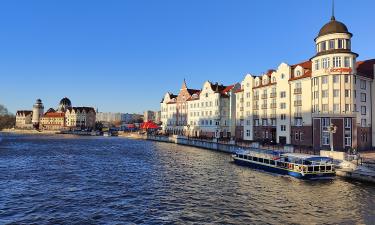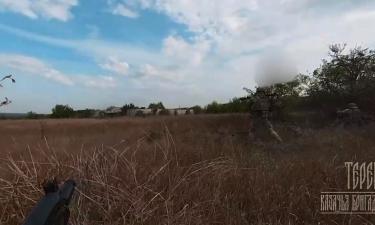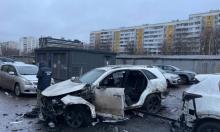Telling Fortunes of State Duma - 24 December, 2002 - News
The story abut the “quarrel between Boris Nemtsov and Grigory Yavlinsky
The year is almost over, so we can speak about its results and guess about the future prospects. Next year, the State Duma election takes place. The United Russia members aim for becoming a ruling party. This was reported Saturday, at the sitting of the party Central Council, by its leader Boris Gryzlov. According to him, “this means that we intend to influence the authorities policy at all levels and to further our representatives to all key posts in legislation and executive bodies.” This statement was not sensational, however it had not been expected to be so.
An out sitting of the Union of Right Forces leaders, which started in the luxurious hotel Holiday Inn, finished Sunday in Moscow Region, in a health centre, which is as luxurious as the hotel. At the sitting, the party programme of economical and political development of the country was declared, the NTV television channel reports. The programme scope and deadline are really impressive: the plan is designed for 50 years. While its main co-author is Yegor Gaidar (who, in his time, literally threw Russia into market economy).
The Yabloko party members did without pomposity (they probably grudged money, or from some other reasons). The main subject of the sitting is preparations for the coming 2003 parliament election. The Union of Right Forces (SPS) party council discussed the faction main priorities for the spring session of 2003. Both parties members spoke about reforms of housing and communal services and the Russian Stock Company United Energy Systems, about corruption and social policy. In general, the Yabloko and SPS position is well-known. Though, recently (and this was confirmed by the sitting) there is an obvious tendency of ousting SPS from the close-to-power position. The first step was made this spring by SPS itself, when Boris Nemtsov started to make statements positioning SPS as a right-wing party. According to observers, the Nemtsov opposition did not get 100-percent support from other prominent figures of SPS, which is not a surprise. During the last pre-election campaign, SPS and Choice of Russia supported the authority in general (however their leaders ventured to made some critical statements), while stressing it in fact realized their programme. Today, Nemtsov sings a different song. The government, according to the right-wing parties, cannot manage with industry reform, while SPS has some suggestions on the subject, which are not properly considered by the White House. Against this background, the Yabloko position, whose leader recently too often says about his support of President Putin, looks more logical.
Yavlinsky for many years criticized the government policy, while the Yabloko faction did not vote for the government draft budgets, and now Yavlinsky rightly says about his support of the President who criticized the government for slow tempos of economical growth. As for the latest events, Yabloko from the very outset was against the reform of Russian Stock Company United Energy Systems and did not vote for it during its first reading. So different views on domestic issues of the country more and more separate SPS and Yabloko. All attempts to agree about a common candidate in the 2004 presidential election failed. Both parties leaders blamed each other with egoism and too high ambitions. As for the coalition in the 2003 parliament election, there are not so many chances for it, according to Nemtsov: “The probability of the coalition is very small, though hope is the last thing which dies… It would be better then just to say to the supporters: Friends, we have done our best to create the coalition.”
The hope of Gennady Seleznev, the leader of The Russia Revival party, is alive, too. The State Duma speaker Seleznev expresses his hope for his party faction appearing in the Duma after the parliament election. “We are entering a very difficult year. This is the last year of this State Duma work, and as a result of the parliament election, balance of political powers will be changed,” Gennady Seleznev said at his Monday Internet conference.
Seleznev notices the party would propose its candidates both according to the list and according to one-mandate districts. “Of course, we will not close all 225 one-mandate districts, though as for 70 of them, we have decided clearly,” – the speaker said. He noticed the minimum task of the party was to get over 5-percent barrier in the election, or at least to create a group The Russia Revival in the Duma. Dmitry Litvinovich PRAVDA.Ru
Translated by Vera Solovieva
Read the original in Russian: https://www.pravda.ru/science/8987-gosduma/
Subscribe to Pravda.Ru Telegram channel, Facebook, RSS!




